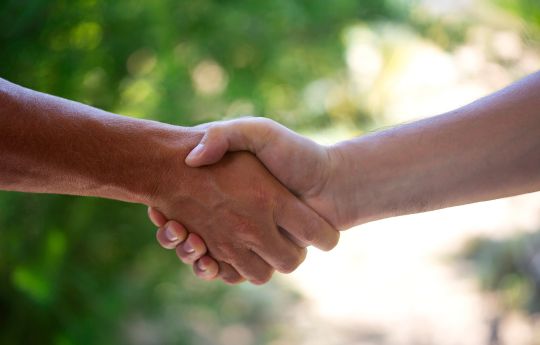
As one of five UK Centres granted funding through UKRI’s £25 million investment in green initiatives, the new Interdisciplinary Natural Products BioHUB Centre will be the first of its kind in Wales.
The Natural Products BioHUB has achieved a significant milestone by successfully obtaining funding through their UKRI application to establish a new Interdisciplinary Natural Products BioHUB Centre. The Centre is set to play a crucial role in enhancing the local green economy, fostering sustainable practices and innovation in natural products.
By bridging various disciplines, the Centre will encourage collaboration among researchers, industry professionals, and policymakers to develop solutions that promote ecological sustainability while driving economic growth.
As one of five UK Centres granted funding through UKRI’s £25 million investment in green initiatives, the new Interdisciplinary Natural Products BioHUB Centre will be the first of its kind in Wales and aims to lead innovation in the use of natural products in the agricultural, pharmaceutical, and manufacturing industries.
The NP BioHUB Centre aims to boost the industrial capabilities of eukaryotic microbes by fostering a collaborative ecosystem across various disciplines. The market for natural products derived from eukaryotic microbes has seen significant growth, with annual increases of 10-15%. This includes sectors such as antimicrobials, organic acids, and emerging areas in algal and agricultural products. Eukaryotic microbes, including fungi and algae, have potential that extends beyond traditional markets like industrial ethanol. They can also contribute solutions to pressing global challenges in alternative energy, sustainable agriculture, and combating antimicrobial resistance.
The NP BioHUB exemplifies innovative collaboration among academia, industry, and civic partners—including Swansea University, the Centre for Agriculture and Bioscience International (CABI), and the Scottish Association for Marine Science (SAMS).
The Centre will launch in October 2024 with UKRI funding support guaranteed for at least the next four years.
Dr Kate Hamer, UKRI Programme Director, Building a Green Future, said, “Transitioning to a sustainable green economy is a win-win for all; it creates new jobs, new partnerships and new industries."
“Through investment in collaboration between researchers and innovators, we harness our collective effort across the public and private sector, driving innovation to secure the future of our environment and deliver sustainable economic growth.”
Project lead Professor Dan Eastwood said: “This funding is a testament to our academic excellence and investment in state-of-the-art facilities to support innovation in nature-based solutions. It underscores our commitment to driving forward impactful research that benefits society and the environment.”
Project Co-lead Dr Farooq Shah added: “The Centre will foster an ecosystem for co-creating and accelerating the Green Economy. This funding presents immense opportunities for businesses to network, engage in collaborative R&D, and maximize their outputs. By providing a platform for academia and industry to work hand in hand, the NP BioHUB Centre will be a catalyst for innovation and growth, driving forward solutions to global environmental challenges.”
The Director of the Centre, Professor Tariq Butt, highlighted the significance of receiving the funding, stating: “The UKRI’s recognition of NP BioHUB as a Green Economy Centre is a milestone that will strengthen and further develop our academic-industry collaboration. This funding not only validates our efforts but also amplifies our capacity to drive meaningful change. By fostering close partnerships between academia and industry, we can accelerate the development and implementation of nature-based solutions that are critical for sustainable development.”
Scientists from CABI will help conduct molecular and biopesticide screening from the Green Economy Centre at Swansea University’s interdisciplinary Natural Products BioHub Centre (NPB-Centre) which seeks to enhance the industrial potential of eukaryotic microbes, fostering a collaborative ecosystem across disciplines.
Dr Steven Edgington, CABI’s Biopesticides Team Leader, said, “I want to thank UKRI for making such a commitment. At CABI we’ll be bringing our expertise in mycology and fungal biopesticides to the Natural Products BioHUB, identifying how naturally sourced fungi can contribute to safer, cleaner crop management."
“Globally we’re becoming more aware of how important it is to protect our crops safely and to use fewer synthetic inputs in and around our soil systems. We’re very excited to be part of this team and we know that the Natural Products BioHUB in Swansea will be a tremendous asset, both regionally and globally.”
Dr Michael Ross, Head of CCAP and SAMS project co-lead, said: "CCAP is an international asset, as one of the most biodiverse culture collections in the world. The micro-organisms that we maintain have an immense, yet underexplored, potential for providing sustainable solutions to some of societies greatest challenges.”
“Throughout this project, we will be analysing our strains to look for properties that align with the NP BioHUB aims of commercialisation of novel metabolites from algae and fungi. These are for more sustainable, natural products, for use in the blue and green circular economy. We are particularly interested in products that have anti-fungal, anti-bacterial, or insecticidal properties to support food security, agritech, and biotech in general.”
“This funding will enable to NP BioHUB to make great strides into our understanding and unlocking the potential benefits of algae, fungi, and protozoa.”
